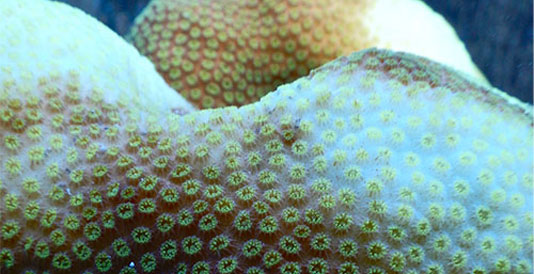 June 4, 2015 - A new research study showed why threatened Caribbean star corals sometimes swap partners to help them recover from bleaching events. The findings are important to understand the fate of coral reefs as ocean waters warm due to climate change. The University of Miami (UM) Rosenstiel School of Marine and Atmospheric Science research team placed colonies of Caribbean star coral (Orbicella faveolata) in a heated tank for one to two weeks to replicate ocean conditions that would lead to both mild and severe coral “bleaching” – when corals turn white as a result of the loss of symbiotic algae living in their tissues. The corals, collected from waters off Miami, were then allowed to recover at two different water temperatures, below and above the local average, to see if they recovered with the same or different algal partners. “Since ‘symbiont shuffling’ occurs in only some cases, we wanted to understand what drives this process and whether it could help corals adjust to climate change,” said Ross Cunning, a UM Rosenstiel School alumnus and lead author of the study. “We discovered that partner switching in Caribbean star corals is dependent upon the severity of the bleaching event and the temperature during recovery.”
June 4, 2015 - A new research study showed why threatened Caribbean star corals sometimes swap partners to help them recover from bleaching events. The findings are important to understand the fate of coral reefs as ocean waters warm due to climate change. The University of Miami (UM) Rosenstiel School of Marine and Atmospheric Science research team placed colonies of Caribbean star coral (Orbicella faveolata) in a heated tank for one to two weeks to replicate ocean conditions that would lead to both mild and severe coral “bleaching” – when corals turn white as a result of the loss of symbiotic algae living in their tissues. The corals, collected from waters off Miami, were then allowed to recover at two different water temperatures, below and above the local average, to see if they recovered with the same or different algal partners. “Since ‘symbiont shuffling’ occurs in only some cases, we wanted to understand what drives this process and whether it could help corals adjust to climate change,” said Ross Cunning, a UM Rosenstiel School alumnus and lead author of the study. “We discovered that partner switching in Caribbean star corals is dependent upon the severity of the bleaching event and the temperature during recovery.”UM Press Release











